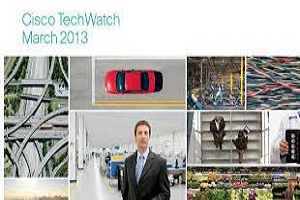March 14, 2013
Communal workspace model making inroads in US offices

There is a growing trend in the United States to downsize office space, particularly amongst larger public firms, as they increasingly adopt policies for sharing non-dedicated offices and implement technology to support their employees’ ability to work anywhere and anytime. In a webinar presented to subscribers of commercial real estate intelligence group CoStar, Norm G. Miller, PhD, a professor at the University of San Diego, Burnham-Moores Center for Real Estate examined what would happen if office tenants used 20 per cent less of the US’ current office space, which has a total valuation of $1.25 trillion.






 Amidst all the controversy over flexible working raised by the infamous Yahoo homeworking ban comes US research revealing homeworking policies lead to happier employers and employees. 93 percent of employees surveyed by
Amidst all the controversy over flexible working raised by the infamous Yahoo homeworking ban comes US research revealing homeworking policies lead to happier employers and employees. 93 percent of employees surveyed by 




















March 5, 2013
Video: another prediction from the 60s gets it a bit right and a bit wrong
by Mark Eltringham • Comment, Technology
[embedplusvideo height=”196″ width=”225″ standard=”https://www.youtube.com/v/rpq5ZmANp0k?fs=1″ vars=”ytid=rpq5ZmANp0k&width=225&height=196&start=&stop=&rs=w&hd=0&autoplay=0&react=1&chapters=&notes=” id=”ep4975″ /]
The latest in our series of videos looking at how the world in which we now live was predicted a generation or so ago. This time a clip from a 1967 documentary called 1999 AD. Although accurate in many respects including the use of online shopping and e-commerce as well as e-mail it betrays its origins in the use of devices with discrete functions, which is reflected in the clearly defined and – to our eyes – jarring description of gender roles.